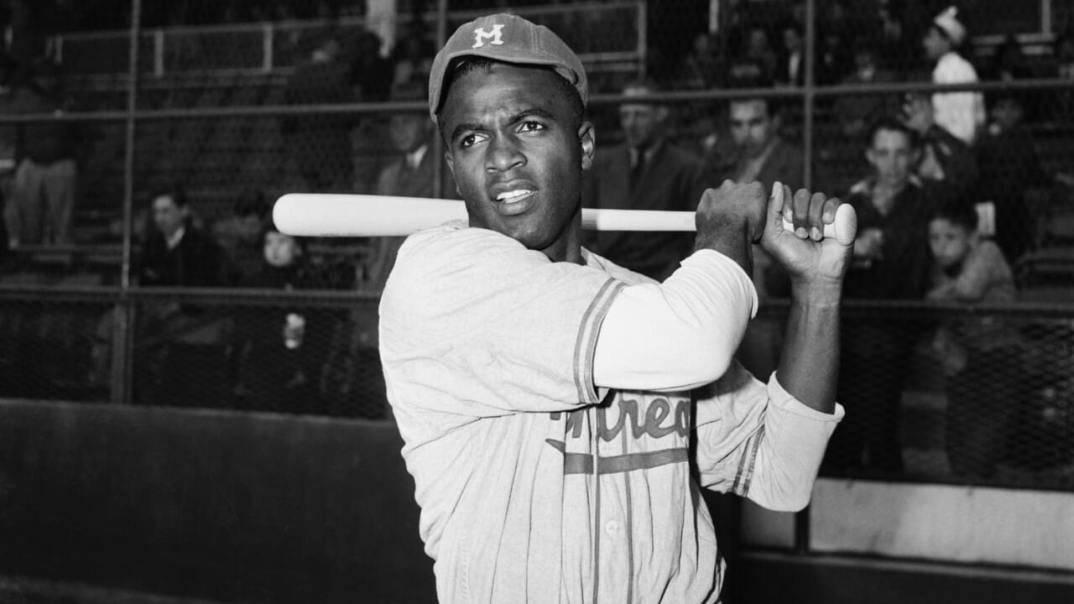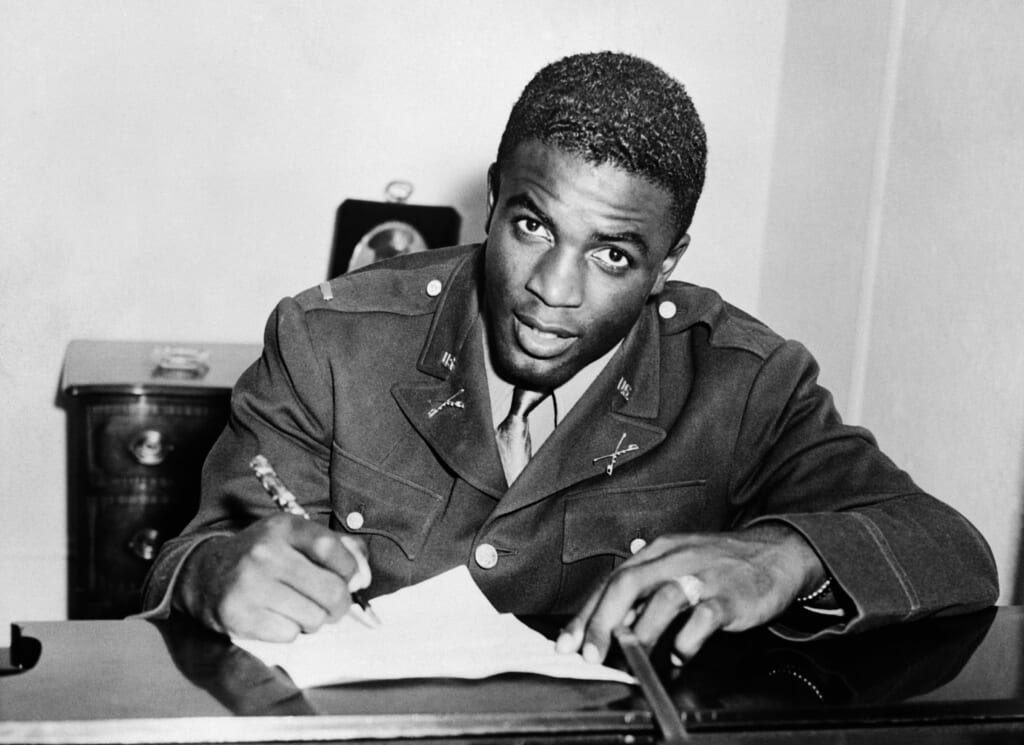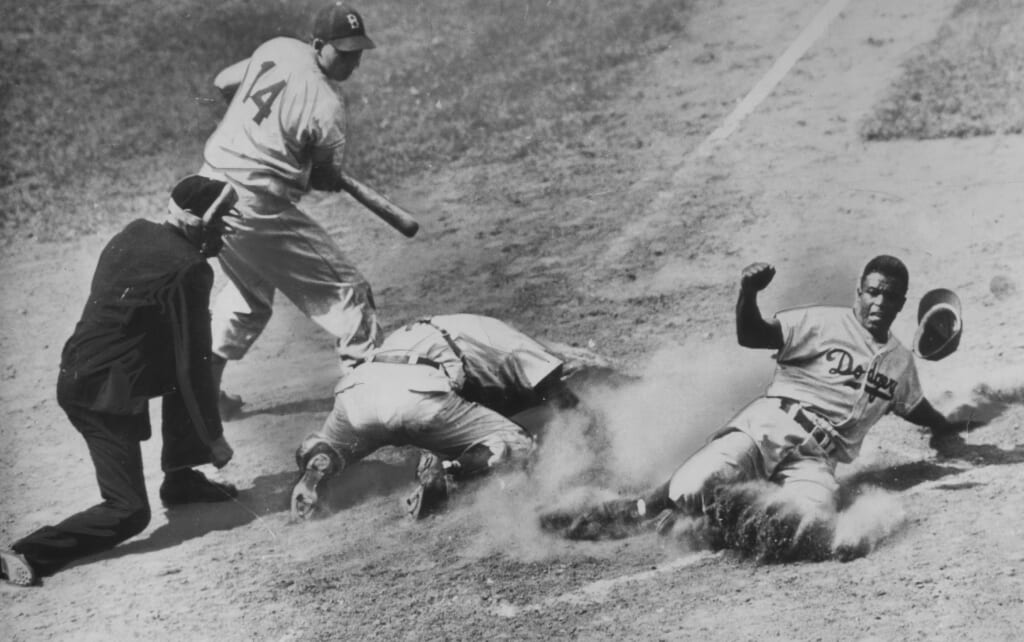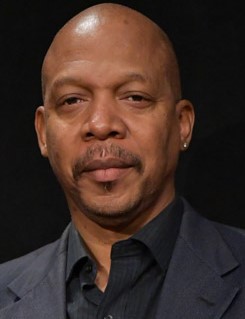Don’t believe that whitewashed version of Jackie Robinson they keep telling you about
OPINION: As MLB celebrates the 75th anniversary of Robinson breaking the color barrier, let’s remember that he was more than a baseball pioneer; he was a civil rights champion, too.

Editor’s note: The following article is an op-ed, and the views expressed are the author’s own. Read more opinions on theGrio.
On Martin Luther King Jr. Day, some folks only concentrate on MLK’s dreams while ignoring his denouncements. King wasn’t just about fighting systemic racism. He also spoke forcefully against poverty and the Vietnam War, topics that endangered his life more than singing “Kumbaya” with Klansmen.
But whitewashing King’s legacy makes the status quo easier to maintain.
The same is true each Jackie Robinson Day.
Today, April 15, marks the 75th anniversary of Robinson smashing Major League Baseball’s color line when he debuted with the Brooklyn Dodgers at Ebbets Field. His entry in 1947 started a ripple of integration across sports and portions of society (e.g., the military and public schools). After six All-Star seasons in a 10-year career, he retired and eventually was enshrined in the Hall of Fame.
And that’s where his story ends…unless you pay attention and reject any sanitized version of history.
Integrating the major leagues was no small feat and harder to imagine today, where some of this country’s most prominent Black Americans are pro athletes. Back then, no sport was bigger than baseball, “the national pastime,” which became deeply embedded in American culture and society as a galvanizing force after World War II.

Yes, Robinson broke a color barrier that had existed in the major leagues since 1884. But he wasn’t just a slick-fielding second baseman who was a terror on the base paths and a beast in the batter’s box. He was more than a baller who won awards for Rookie of the Year (1947) and Most Valuable Player (1949).
Those were issues of fun and games.
Matters of life and death were his real focus.
Robinson initially played meek in becoming an MLB pioneer, but he was never about that submissive life. He proved it in 1944—11 years before Rosa Parks—as a 25-year-old Army lieutenant. Ordered to sit in the back of a bus, he refused and was court-martialed.
As Dodgers general manager Branch Rickey prepared for the historic signing, he made Robinson promise to suffer racial indignities without objection. But the agreement lasted only two years, after which the MVP was cleared to not turn the other cheek. “From that moment on, I defended myself against anti-Negro insults with all the force at my command,” Robinson wrote in Baseball Has Done It.
Robinson began fighting back and kept swinging immediately after retirement. He could’ve shut up and stuck to sports, but he wasn’t about to sit back and enjoy the fruits of his career. There was “good trouble” ahead, and Robinson wanted all the smoke, even as a vice president for Chock full o’ Nuts coffee company.
He raised money for the National Association for the Advancement of Colored People and the Southern Christian Leadership Conference. He supported the movement in newspaper columns he wrote for the New York Post, and he championed Black economics by helping to start Freedom National Bank in Harlem.

“At the dinner table, the focus was on the civil rights movement,” daughter Sharon Robinson told MLB.com. “When he retired from baseball, he was excited to participate in the civil rights movement in a different kind of way. It was built into his contract with Chock full o’ Nuts that he could spend as much time as needed (with the movement).”
Robinson didn’t forget about sports, either. Although he died well before Colin Kaepernick kneeled and Brian Flores sued, he would’ve stood with those brothers, too.
In his autobiography, I Never Had it Made, Robinson wrote about the opening game of his first World Series, noting that “it should’ve been a glorious moment for me” as the band began playing. But “As I write this twenty years later, I cannot stand and sing the national anthem,” he wrote. “I cannot salute the flag; I know that I am a Black man in a white world. In 1972, in 1947, at my birth in 1919, I know that I never had it made.”
A half-century ago, Robinson addressed the crowd before Game 2 of the 1972 World Series. He didn’t know it’d be his final speech (he died nine days later), but he wasn’t satisfied to celebrate his 25-year-old achievement. “I am extremely proud and pleased to be here this afternoon,” he said. But I must admit, I am going to be tremendously more pleased and more proud when I look at that third-base coaching line one day and see a Black face managing in baseball.”
As MLB salutes Robinson this year, including a video tribute shown at each ballpark, it’s important that everyone in all sports—athletes, fans, officials, advertisers, and sponsors—takes note of his off-the-field achievements. He didn’t waste time or his platform.
Being a baseball pioneer was a matter of circumstance.
Being a civil rights activist was a matter of choice.
Celebrate the latter even louder than the former.

An award-winning columnist and a principal of BlackDoor Ventures, Inc., Deron Snyder is a veteran journalist, stratcomm professional, author, and adjunct professor. A native of Brooklyn and an Alpha from H.U.-You Know, he resides in metropolitan DC with his wife, Vanessa, mother of their daughters, Sierra and Sequoia. To learn more, please visit blackdoorventures.com/deron.
TheGrio is FREE on your TV via Apple TV, Amazon Fire, Roku, and Android TV. Please download theGrio mobile apps today!


